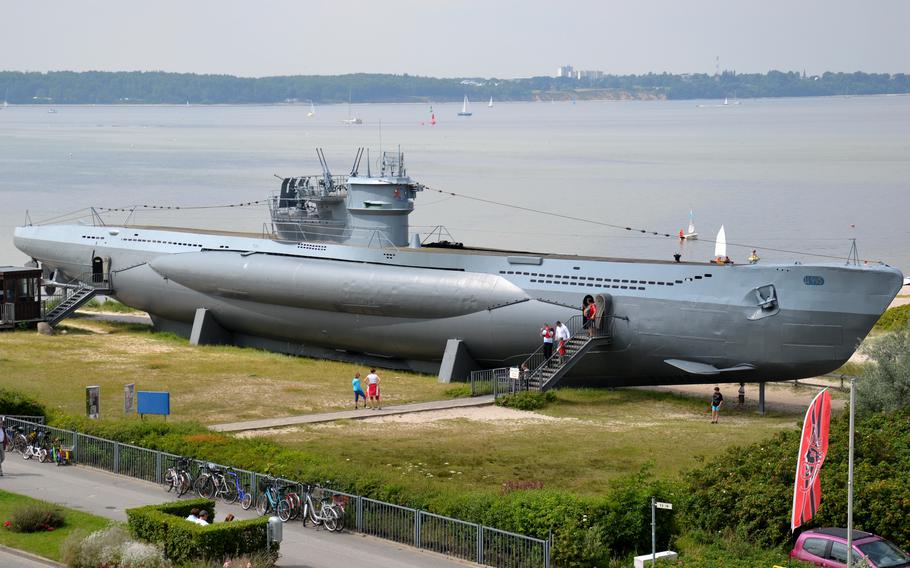
Submarine U995 at the naval memorial in Laboe. (Wikimedia Commons)
The Russians appear to have learned a variation of a maritime ploy – to hide a ship’s mission capability – first used by the British during World War I.
German submarines, known as U-boats, proved deadly during the conflict. They were credited with sinking 30% of the world’s merchant ships.
While capable of striking thousands of miles from home, standard U-boats were limited to only carrying between 8-12 torpedoes – some of which turned out to be unreliable. Thus, upon locating an Allied merchant ship, U-boats tended to save their torpedoes for deadlier targets, surfacing to use their deck guns.
Recognizing this tendency, the British conceived the idea of developing “Q-ships” or “Mystery Ships.” These were “fake freighters (with the capability of) turning into turreted men-of-war at a moment’s notice.” What looked through a periscope like an innocent and defenseless merchant ship quickly converted into a well-armed gunboat by exposing its hidden guns after the submarine had been lured to the surface.
While Q-ships were initially very successful, sinking about a dozen U-boats and damaging 60 others, the Germans quickly caught on to the ploy.
Over the past two years, several countries in Europe have suffered repeated breaks in their undersea power and telecommunication cables in the Baltic Sea. These have included Finland, Germany, Lithuania and Sweden. When such breaks have occurred, there seems to have always been an innocent-looking Russian tanker present. These vessels have lingered in transit, obviously to perform a mission other than that for which they were designed. Like the Q-ships, these tankers conceal a capability to wreak havoc upon an unwary victim.
Germany has been taking the lead in getting to the bottom of the issue. While the ships in question often operate with unclear ownership and inadequate insurance, it believes the ships are all part of a “dark fleet” Russia maintains to sever and thus disrupt power and telecommunications among the European nations.
As a result, Germany is pressing for tougher sanctions on Russia’s oil tanker fleet with the European Union already having sanctioned 79 such vessels. The German Foreign Minister underscored the urgency in such measures as these “ships are damaging major undersea cables in the Baltic Sea almost every month.”
Meanwhile, in conducting its investigation, Finland seized the tanker “Eagle S,” which was carrying Russian oil on suspicion it was responsible for cutting a Finnish-Estonian undersea power cable along with four telecommunications lines. A Finnish court has upheld the ship’s seizure.
While the Russian tankers lack the offensive capabilities of the Q-ships of old to conduct warfare, they do have the capability of conducting a silent war that threatens these countries with devastating environmental and security risks. During World War I, the German submarine fleet learned to minimize the Q-ship ploy; hopefully the EU will learn to do the same with the ploy Russia uses for its dark fleet.
James Zumwalt is a retired Marine infantry officer (lieutenant colonel) who served in the Vietnam War, Panama and Operation Desert Storm. He is the author of three books and hundreds of opinion pieces in online and print publications.